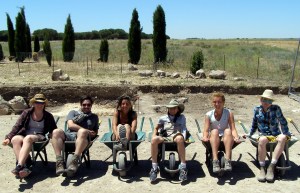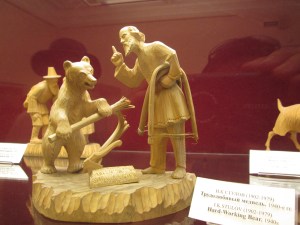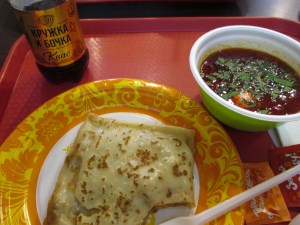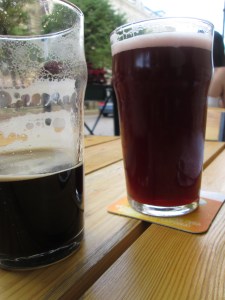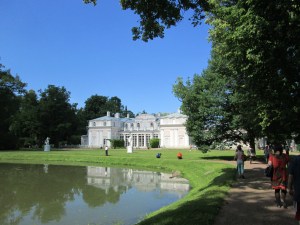Yevgeny Zamyatin is among my literary heroes. A subversive writer who protested first the Czarist and then the Bolshevik governments in Russia during the tumultuous period between 1900 and the 1930s, Zamyatin was multi-talented and pretty damn close to fearless. He wrote novels, short stories, political essays, literary criticism, and plays; edited literary magazines and journals; served on editorial and theatrical boards; mentored the Serapion Brothers Literary Group; lectured on Russian literature, naval engineering, and creative writing; and designed warships for Russia and England during World War I.
Somehow, with all that on his plate, he also managed to find time to be exiled on three separate occasions. The first time, he was a student in St. Petersburg (known in the Soviet years as Petrograd) who regularly participated in demonstrations against the Czarist government and was caught hiding an illegal printing press in his dorm room. He was exiled from the city in 1905, but he sneaked back in to finish his degree in 1906. Through a bureaucratic loophole, he was able to stay and begin his teaching career at the Polytechnic Institute. He was exiled from the city again in 1911 and then sent to Ukraine in 1913 to get him out of Russia. He worked on warships in England from 1916-1917, where he became an associate of George Orwell (Orwell’s 1984 would be heavily inspired by Zamyatin’s ideas and his novel We). Zamyatin managed, again, to sneak back into St. Petersburg, this time for the 1917 Russian Revolution.
Although Zamyatin had been a Bolshevik since his student days, he was (like many others) repulsed by the brutality of the civil war that followed the Revolution, as well as the pressure for conformity which the new Bolshevik government imposed on society. Zamyatin was as quick to criticize the authorities of the Soviet regime as he had been those of the Czarist regime, earning him epitaphs such as “The First Dissident,” “The Devil of Soviet Literature,” “The Soviet Heretic,” and “the most left-wing man in Russia.” His 1920 novel We became the first novel banned in the USSR; it wasn’t even published yet, and had only been read in literary circles in manuscript format. (It was published abroad in 1924 and would go on to inspire Orwell’s 1984, Huxley’s Brave New World, and Vonnegut’s Player Piano.) Truth in literature, empathy toward others, and a deep awareness of reality were paramount in Zamyatin’s philosophy. He once wrote, “It is not possible to build on negative emotions. Genuine literature will come only when we replace hatred for man with love for man,” (The Goal).
In 1931, after being systematically banned from publication and from the theater, and removed from his teaching positions, he wrote a letter to Stalin requesting to leave the Soviet Union to live abroad. Here is a quote from that letter which pretty well displays Zamyatin’s lack of fear:
I know that I have the very uncomfortable habit of saying what is not advantageous at a given moment, but whatever I believe to be the truth. I never concealed what I think of literary servility, toadyism, and coat changing. I have always thought and I continue to think that such things are as degrading for the writer as they are to the revolution.”
Yevgeny Zamyatin to Yosef Stalin, 1931
As much to Zamyatin’s surprise as anyone’s, Stalin granted passports to Yevgeny and his wife. The Zamyatins traveled in Germany and Czechoslovakia before settling in Paris, where they met Marc Slonim, the man who had published We. Sadly, Zamyatin’s health deteriorated rapidly; he had heart disease. Slonim sheltered him and helped nurse him through his final years before Zamyatin died in 1937.
The striking thing (to me) about Zamyatin’s ideas, his philosophy, his writing advice, is how deeply rooted they are in his particular moment in time and place, and yet how universally they apply. Some of Zamyatin’s quips and quotes could belong just as well to an L.A. punk rocker of the 1970s or a Zen philosopher as a subversive shouting his message from the early days of the USSR.

A few fun facts:
- As a child, Zamyatin was bitten by a rabid dog. He didn’t tell anyone until two weeks later, because he wanted to see what it would feel like to have rabies. Luckily for him, he didn’t contract the disease
- Zamyatin struggled with math as a child; he chose to study engineering specifically to challenge himself
- Zamyatin applied Einstein’s theory of relativity to his writing style, which is why he avoids chronological narration, changes point of view, utilizes multiple planes of action, and expands time relative to the moment in his work
- Zamyatin was deeply inspired by Dostoevsky, particularly his concept that the irrational is the ultimate source of freedom and individuality (most famously expressed in The Brothers Karamazov in the Grand Inquisitor sequence)
Zamyatin quotes:
- “We have long become overgrown with calluses; we no longer hear people being killed,” The Dragon: Fifteen Stories
- “If I mean anything to Russian literature, I owe this completely to the Petrograd Secret Service.”
- “Irony, sarcasm, and satire are the most effective weapons of progress…for stopping man kneeling before someone or something.”
- “There are books of the same chemical composition as dynamite. The only difference is that a piece of dynamite explodes once, whereas a book explodes a thousand times,” A Soviet Heretic
- “Who knows who you are…a person is a novel: you don’t know how it will end until the very last page. Otherwise it wouldn’t be worth reading to the very end,” We
- “Knowledge! What does that mean? Your knowledge is nothing but cowardice… You just want to put a little wall around infinity. And you’re afraid to look on the other side of that wall,” We
If you’re curious to read some Zamyatin, I can’t recommend enough the short story “The Cave.” It’s my favorite of his works that I’ve read. The novel We, as you can tell from this post, is probably his most important piece in terms of influence on literature.



